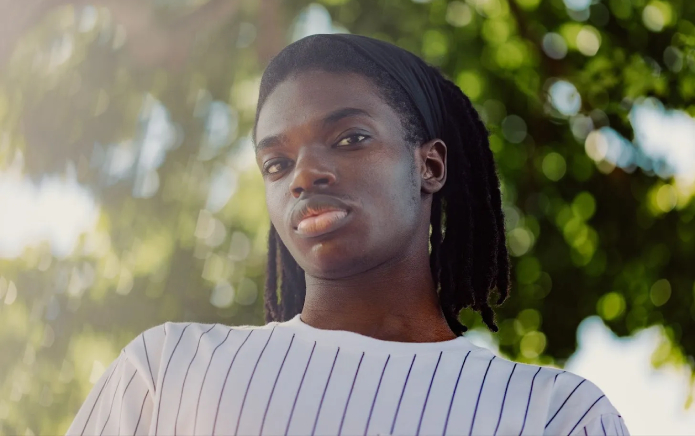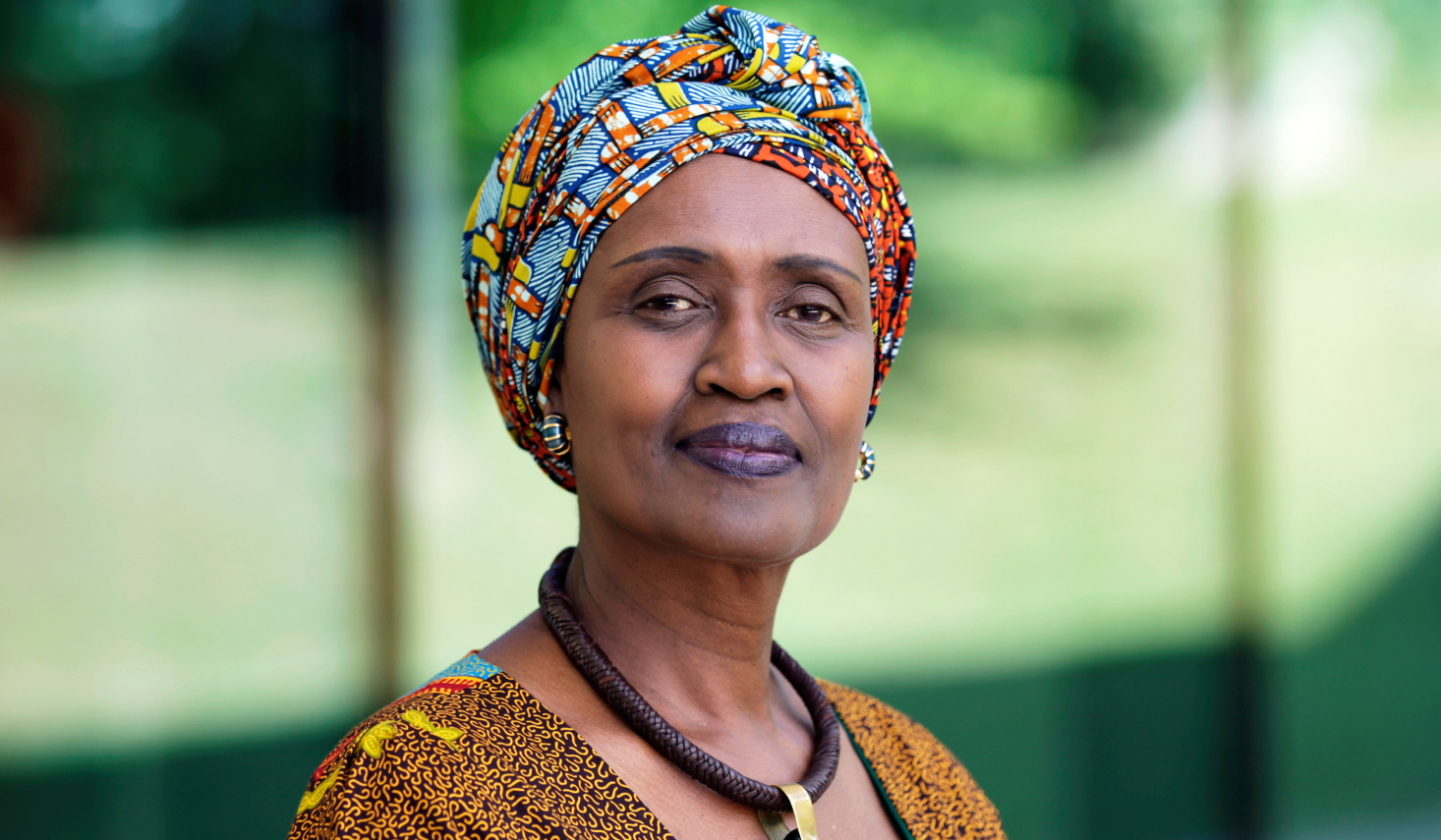
Governments all over the world have committed to bringing the HIV/AIDS epidemic to an end by 2030, something that would have seemed impossible mere decades ago. Now, the goal is within reach, but Winnie Byanyima, Executive Director of the Joint United Nations Programme on HIV/AIDS (UNAIDS), tells GAY TIMES that “work still needs to be done” to make it a reality in the next seven years. “We have 30 million people around the world living with HIV and on treatment, living good lives,” she explains. “But we also have 9.2 million people who we still have to find, who for many reasons, are not accessing treatment.”
Byanyima, who is also an Under-Secretary-General of the United Nations (UN), oversees the global response to HIV/AIDS as part of her work at UNAIDS. As well as being a vocal advocate of the LGBTQIA+ community, she has fought to remove barriers in accessing HIV treatment and care globally. “We are clear about what we are going for,” she says. “We want to reach zero new infections, we want to go down to zero deaths and we will continue to work hard towards that.”
That’s not to say there aren’t several obstacles the world needs to overcome before that can happen. Byanyima highlights that more than 60 countries still criminalise LGBTQIA+ people, which can result in HIV-positive members of the community not accessing vital treatment due to fears of discrimination and/or harassment. One of the most prevalent examples of this is Uganda, which earlier this year enacted one of the world’s most extreme anti-LGBTQIA+ laws. As well as upholding the criminalisation of same-sex sexual activity, the bill includes the death penalty for ‘offences’ like transmitting HIV. Byanyima, who is originally from the country, is appalled by the “wicked law” and has severe concerns that it “is going to reverse the gains that Uganda has been making against HIV.”
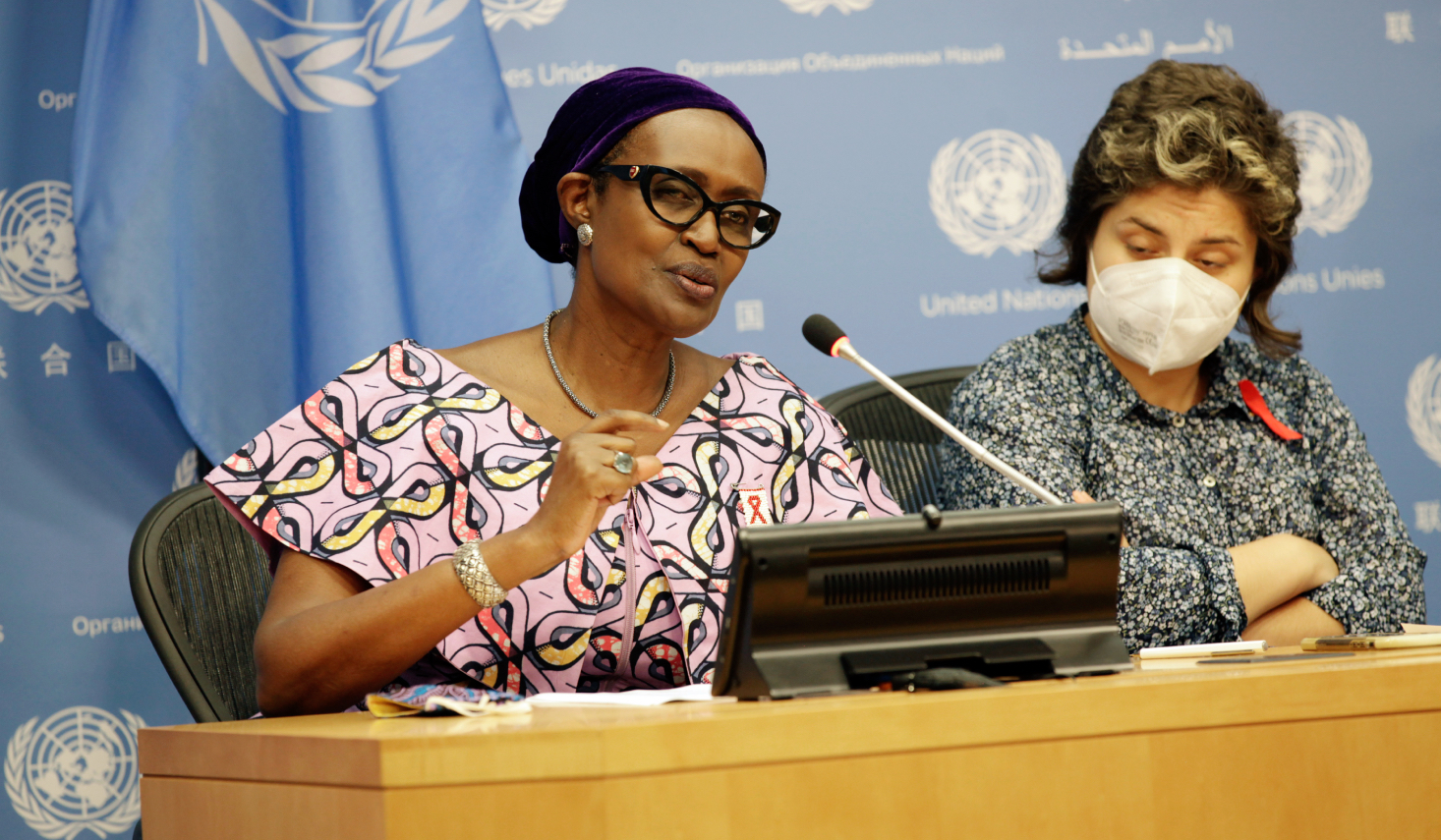
“How? I’ll give you the facts,” she starts. “Uganda has, for example, 84 drop-in centres. What are drop-in centres? These are small places in communities where gay men, men who have sex with men, transgender women and others who are also criminalised, like sex workers, people who inject drugs, can go to their safe spaces and they will get condoms, antiretrovirals, whatever they need, tests and so on. They can rest because many times they are being hammered in their communities. Their families don’t want them, have thrown them out, communities hunt them down because of homophobia in the society…Today, those drop-in centres, even when the law was still being debated and there was so much hate in the media, they started being empty. People were afraid to show up there because they could be arrested, could be attacked there. So we saw already how people are not coming to be served.”
Byanyima states that countries where minority groups are criminalised often see their progress against HIV/AIDS stagnate, with UNAIDS concerned that Uganda could see a rise in new infections and deaths as a result of the anti-LGBTQIA+ law’s impact. “Let’s be clear,” she says, “it’s not just about the health of gay men or sex workers, it’s the health of everybody because we are one ecosystem. If a part of the population is seeing infections rising, infections will rise in all the other groups…We have the evidence across the world that in countries which decriminalise, we see rapid progress against new infections, reducing new infections and reducing deaths. When you criminalise, you actually slow your progress against HIV – and it’s [also] just about human rights. Why should we punish someone for who they love or who they are? They can’t change who they are, they are born that way. They love because it is from their heart. What has the government got to do with that? It’s a violation of human rights.”
Modern developments in both health and technology have led to increased accessibility to things like pre-exposure prophylaxis (PrEP) and home testing kits. Though barriers still remain in obtaining both, particularly when it comes to where someone is based, they have each played a crucial role in helping countries like the UK reduce the threat HIV poses. “Nearly a half of all the people who did an HIV test in your country last year did it by ordering online,” Byanyima says. “So that’s technology helping to go around the challenge of stigma and discrimination. You have your privacy, you do your tests in your house, the test is brought up to your door. So these are real advantages that are not there in the developing countries.”
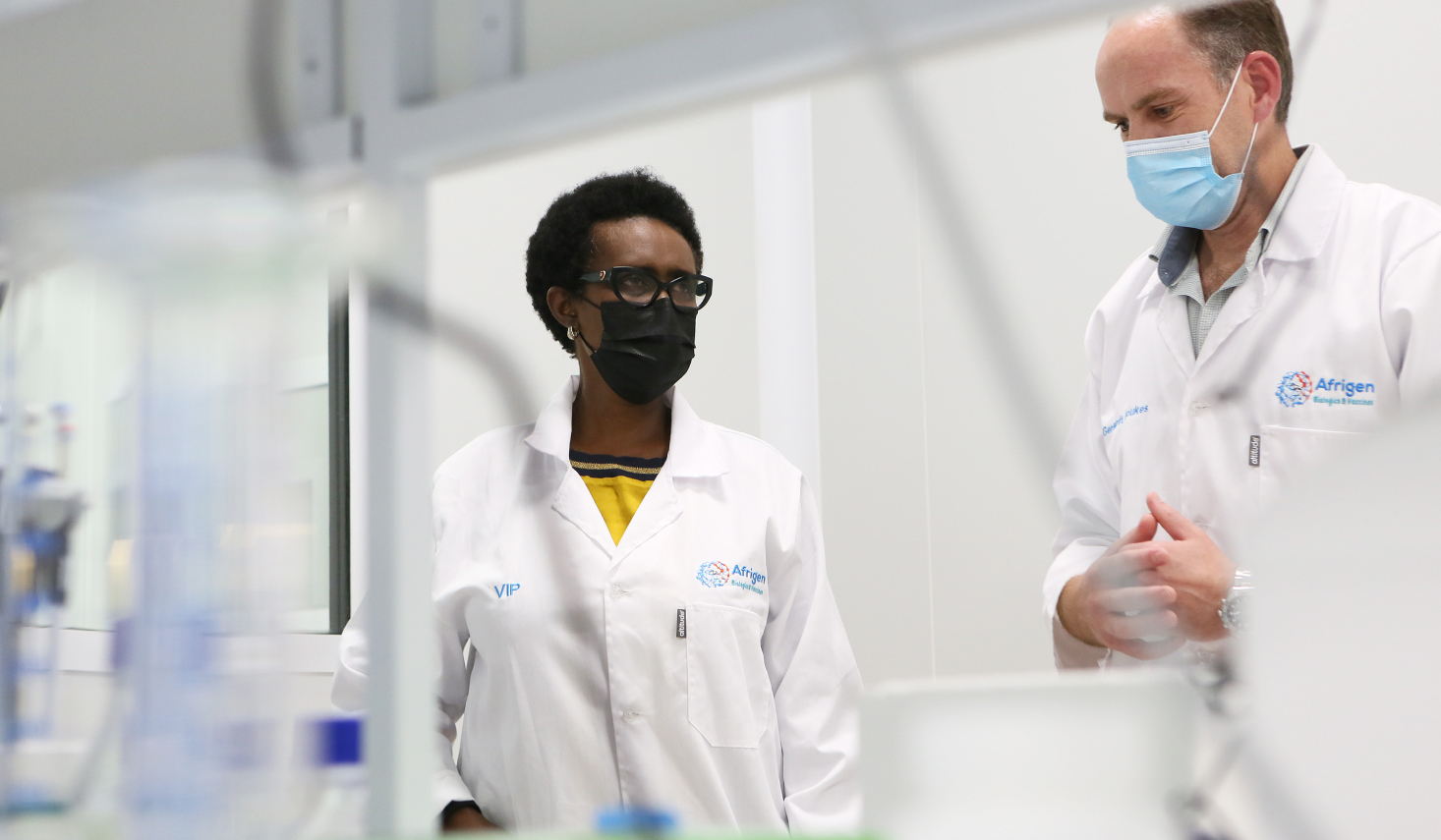
Long-acting PrEP, which can protect against HIV for several months at a time, has started hitting markets around the world, but is yet to be rolled out widely. Byanyima, however, believes that it has the potential to be a gamechanger in the fight against HIV/AIDS if used effectively. “If it could reach those men in countries where it is criminal to have same-sex sex, those people need it even more than where there’s freedom to be gay, because they’re the ones who are hiding,” she explains. “So can you imagine what an injection would mean? That you can go to such a drop-in centre, get an injection and you are okay for two, maybe even up to six months? That’s big because it means you don’t have to worry about tablets. You are living secretly, hiding from the law, so you prefer not to be seen with tablets. Some of them actually have their tablets at the drop-in centre because where they stay, they don’t want to be known. So some of these technologies in the hands of those who are criminalised would transform and would really move us faster towards the end of AIDS.”
Another thing UNAIDS views as pivotal in reaching the 2030 goal is communities, which are emphasised in its new ‘Let Communities Lead’ report that lays out the support people on the ground need. Byanyima notes that advocacy at a grassroots level has led to positive change in policy and social attitudes around the world, which it still has the power to do if properly resourced by those in power. “They fought in the early years, the ‘90s and the 2000s, to break the monopoly of big pharma, to bring prices down so that wherever you are in the world, you can get what you need to prevent or to treat,” she says. “Communities have been fighting for [the] human rights of everyone, everyone’s right to get what they need.”
Byanyima tells the story of a 26-year-old woman she once knew who lived in a slum in Kenya and went door to door in her community. She explains that she worked tirelessly to ensure that those who needed information on and treatment for HIV got access to it, as well as helping those who faced bigotry because of their status. All the woman got in return was a $20 per month volunteer stipend, which Byanyima affirms is unacceptable.
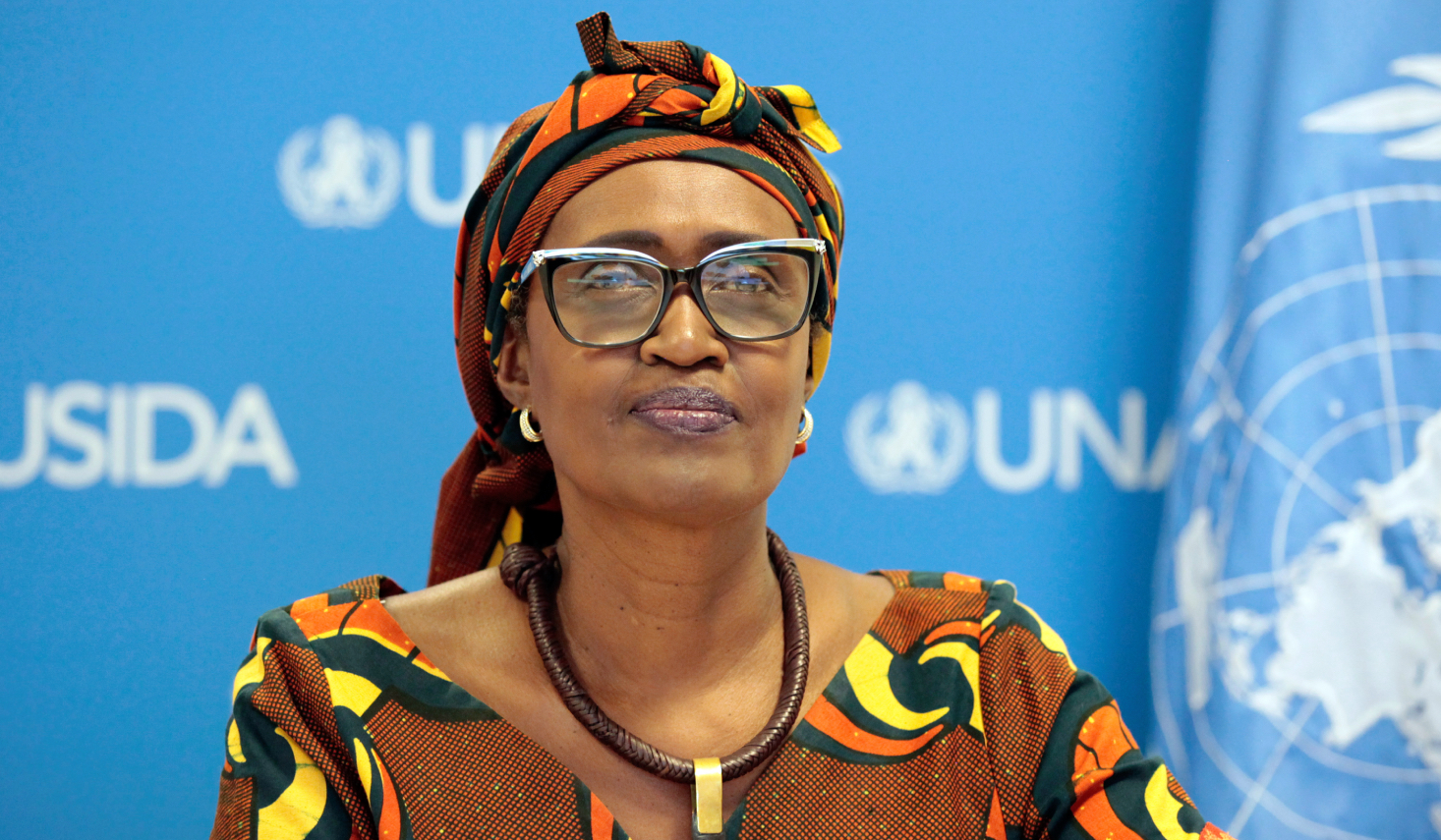
“We’re saying resource this work, it is important work. Nine years ago, 30 per cent of all the resources for HIV in the world were going through civil society, through people like these and their organisations. Today, this has dropped down to 21 per cent, we’re seeing less and less resources going to communities,” she says. “This isn’t only bad for communities who are working hard without pay, it’s bad for everybody. It’s bad for the response. So we’re saying resource this work, enable this work, protect their human rights.”
Despite the challenges that still exist in bringing the HIV/AIDS epidemic to an end, Byanyima firmly believes that “it is possible” by 2030. She notes that 9.2 million people still need to be found and put on treatment, further explaining that AIDS claimed one life per minute last year. “We have to keep reminding ourselves, it’s not done,” she says, adding: “But, we managed to reduce new infections since the peak in 1995, down by about 60 per cent. Deaths, from the peak around 2004, down by 70 per cent. So the trend is towards winning against this disease. Today, we have five countries that have reached the midpoint of the targets of 2025, and these are poor countries: Zimbabwe, Rwanda, Tanzania, Eswatini.”
Byanyima shares that she is “very proud” to soon be receiving an award from Global Black Gay Men Connect, a global platform that ensures Black gay men are mobilised to actively demand for social justice towards a harmonious coexistence. “They are giving me an award for being the most outspoken ally of the year, isn’t that great?” she smiles. “I feel good about it because we at UNAIDS are very outspoken about the anti-homosexuality act in Uganda, we fought it [and] we are fighting similar bills that are being presented to parliaments in Kenya, in Ghana and other countries.” She adds that she has been “attacked brutally” for her support of LGBTQIA+ rights, but affirms that this will never stop her from backing the community – especially when it comes to HIV/AIDS. “his award makes me really feel good about the work we do,” she continues. “I feel very proud that African gay men have recognised that.”
